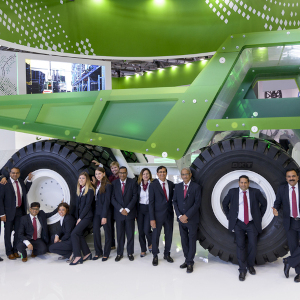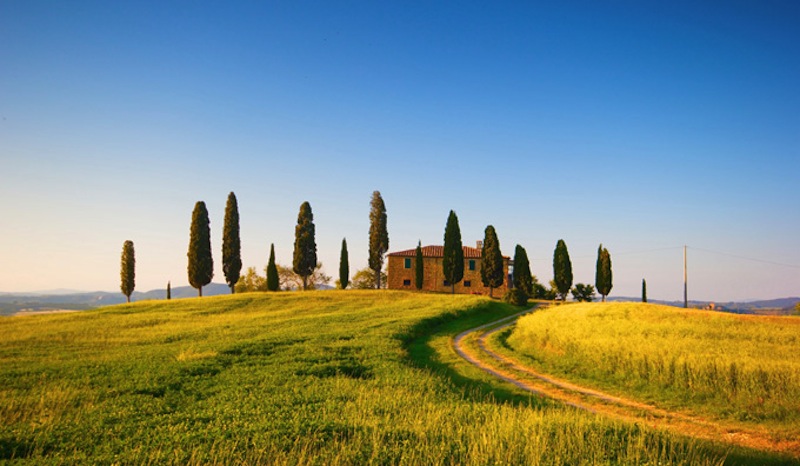The question is: do big farms and small family businesses have a different approach to agriculture? And is one more effective than the other? In today’s blog, we set out to answer this question for our readers!
In today's blog, we are pitting two types of farms against each other: big farms vs. small farms. This is to tackle a question we often hear that, frankly, doesn't have a simple answer!
The question is: do big farms and small family businesses have a different approach to agriculture? And is one more effective than the other?
The answer to the former is "yes” - when it comes to soil preservation, food safety, biodiversity and precision farming, for example, farmers on different-sized farms have different trusty methods to do the same job.
We'll particularly be focussing on the impact of the ever-growing population and climate change, and how different farms react in crisis mode! Issues such as soil erosion, animal health, and the use of fertilizers take center stage in farmers' day-to-day lives. So, without further ado, let's take a closer look together!
4 Farming Challenges: Compared
1. Soil preservation
Beneath our feet, there is a precious world to protect – but how? Big farming businesses use innovative technology to ease operations, increase efficiency, and ultimately, be kind and gentle to the soil. For example, most larger farms use soil sensors to measure the water level and drones to monitor crops, insect plagues, and livestock health. Moreover, there are excellent irrigation systems and equipment that reduce soil compaction. With such a large proportion of land to oversee, it's not surprising that big farms rely on good ol' technology to keep an eye on things!
On the other hand, small family farms exercise direct control of their land. One of the perks of having fewer acres is that there is less land to look after! Therefore, farmers can observe their land's health directly, adopting practices such as crop rotation, strip cropping, or terracing to improve soil fertility and yield.
2. Food safety
The central goal of farming is to produce plenty of food for ourselves and future generations. Food safety is directly linked to healthy agriculture, resulting in increased yields. Big farming businesses rely on equipment that can identify detailed information on changes in the harvest. This greatly helps boost productivity, which is all the more critical as the global population increases. The same goes for cultivating crops such as trefoil or alfalfa, which make the soil richer and healthier.
Meanwhile, small family businesses have long-lasting farming traditions. They know full well that richer and healthier soil means more yields. Therefore, they regenerate crops such as evergreens within the rotation cycle and supply the soil with nutrients, utilizing natural and organic compost rich in carbon. These are both excellent techniques to increase a farm's yield.
3. Biodiversity
Fears of soil erosion – not to mention the excessive use of chemical fertilizers – can be eased through biodiversity. In terms of today's 'farm off,' there is no disparity here – biodiversity is essential for farms of all sizes.
Put simply, biodiversity is the range of animals, plants, and microorganisms on a farm. Cultivating a large variety of seeds with different properties and needs for nutrients is very important to reduce the environmental impact and use of fertilizers, while increasing productivity and ensuring a rich soil. So, biodiversity is a win-win for everyone!
4. Precision farming
How do farmers determine the correct amount of fertilizer use? Precision farming has all the right answers. Large farming businesses use satellite data to set up and work out production maps that can define the specific needs of any micro-area. They also establish the ideal quantity of fertilizers and nitrogen for each micro-area to favor crop fertility.
However, in smaller farms that often don't have the means for such investments, farmers rely on their machinery and tires: using double rotor spreaders, for instance, allows farmers to distribute fertilizers homogeneously on every square meter without the need for satellite models.
The Benefits of Different Scale Farms
Agriculture may be a booming, high-demand industry, but did you know that family-run farms account for 96 percent of the 2 million plus farms in the US? Not to mention worldwide! Family farms do tend to be smaller, and many argue that one of the key benefits of a smaller farm is higher quality produce – due to the ability for vital attention to detail. Technically speaking, small farms are also more productive on a daily basis, if you specifically consider their output level per unit of land. This also leads to these small farms being more sustainable, as their level of productivity naturally reduces energy and water use.
However, we can't ignore the benefits of larger industrial farms! While they may not be as productive per unit of land, they are overall capable of far more food production, and thus provide a practical solution to the ever-growing global population. Moreover, many perceive technology as the future of farming, and larger farms place technology at the front and center of their day-to-day activities. Alternatively, some prefer upholding family traditions, and getting stuck into the graft by hand!
It is safe to say that there are different benefits to different-sized farms – and certainly different ways of carrying out daily tasks! However, the heart of agriculture still permeates through farms of all sizes – and whether your farm is big or small, at BKT we salute and support you! To peruse our range of trusty tires for your tractor (big or small!), join us in the agricultural corner of our website!






